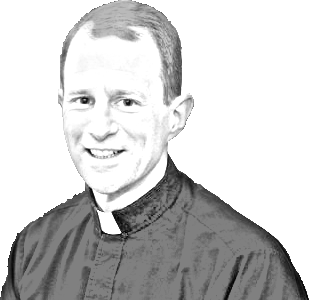At Georgetown, New Student Orientation offers a marvelous, nearly round-the-clock set of activities to welcome new Hoyas, introducing them to our community and offering them an array of tools to succeed. Sometimes I wonder if we ought to do something similar for returning Hoyas. Returning has its own dynamics, with both pitfalls and promises; we would do well to acknowledge them and prepare ourselves to make the most of them.
As someone who has returned to the Hilltop nine times now, I would offer five rules for returning. They are lessons I have learned both from my own experience and from students and colleagues I have known along the way, and I think they might be especially appropriate now, when classes are in full swing and we are settling in for the long haul of the academic year. Some of them may even be of use to new students now that life is normalizing after the whirlwind of NSO.
No. 1: Returning truly is a new beginning. Your previous identity on campus need not define you. In fact, it is important to recognize that your time away — whether for a summer, a leave or a study abroad experience — has changed you. You have the chance to begin fresh and to take on new challenges and adventures. Old failures, worries, dramas and even successes can be left behind. People will be far more eager to discover the new, emergent you than dwell on the past you. Take the chance to keep growing and stretching into the person you hope to become.
No. 2: Returning is all about establishing — and renewing — relationships. There are new professors and mentors to get to know, and indeed you often get to know them more deeply through shared projects as you become an upperclassman. Your relationships with roommates and friends — now in new rooms, apartments or houses — can take on a different character; some will deepen, some will be completely new and others may gently slip away. All of that is OK, and even healthy. Perhaps most importantly, there is an opportunity to develop a new relationship with yourself, setting a new rhythm for rest, exercise, study, friendships and for prayer and reflection, and savoring a new appreciation of yourself and the person you are becoming.
No. 3: Bring your experience with you when you return. Where you are returning from matters — let it find its way into the topics you choose to research, the papers you write for courses, the talks you go to on campus and the clubs and internships you pursue. Share stories with friends. Bring back the music, fashion or literature that touched you. Be formed by what you have experienced so that it gets inside of you and shapes — or reshapes — how you see your life on the Hilltop.
No. 4: Do not just return to well-known, easy experiences; give yourself space to try new things and fail. Isn’t it strange that we are far more willing to step out of our comfort zones when away but feel the need to be perfect here on campus? I am convinced that we all need at least one aspect of our lives in which we are able to simply laugh at ourselves. For me, a few years ago, it was awkwardly participating in the “Dancing With the Hoyas” competition. To be good at some things, we need the freedom to not be so good — or even downright bad — at others.
No. 5: Remember what brought you here, and pay attention to the often-surprising ways it is coming to life within you. Each of us came to the Hilltop because something unique captured our attention — maybe a sense of tradition and purpose, a world-renowned professor, a desire to serve or a hope for who we might become as a thinker and human being. Now, as we return, that original hope and vision may have evolved and even been diverted in new directions. Take the time to examine the arc that led you from your first arrival to this arrival, and to keep dreaming of where it will lead you next.
Returning matters. We often tell incoming students that Georgetown will transform them. As returners, we have the chance to see and savor — and choose anew — the transformation that is happening in each of us and in our friends around us. When we do, we get just a bit closer to this promise of transformation that NSO and our Jesuit tradition set out before us when we first arrived.
Fr. Matthew Carnes, S.J., is an associate professor in the department of government and Walsh School of Foreign Service and currently serves as director of the Center for Latin American Studies. As This Jesuit Sees It is a rotating column that appears online every other Thursday.




















